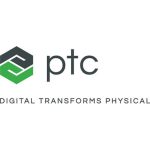Integrating Vehicle Reimbursement Programs (VRPs) into field service work, particularly within the medical device industry, underscores a significant evolution in operational efficiency and employee satisfaction. This convergence is driven by the critical nature of field service tasks — ranging from installation to maintenance of medical equipment — and the essential role of field sales representatives in nurturing professional relationships and advising on medical solutions.
VRPs play a pivotal role in this ecosystem. These programs are designed to reimburse field personnel for travel-related expenses incurred during the course of their work. This includes mileage, fuel, and maintenance costs, which are vital for employees who use their personal vehicles for business purposes. But the essence of VRPs in the medical device sector goes beyond mere reimbursement; it’s about providing a framework that facilitates ease of travel, ensuring that technicians and sales representatives can perform their roles without the added stress of out-of-pocket expenses.
Advantages of Field Service Software
Field service software offers a suite of benefits, including streamlined mileage tracking, expedited reimbursement processes, and enhanced decision-making through data analytics. For VRPs, this software simplifies the complexity associated with tracking travel expenses, allowing for an efficient and transparent reimbursement process that ultimately boosts technician productivity and customer service quality.
These programs not only ensure fair compensation for employees but also aid companies in managing costs effectively. By adopting VRPs, businesses can offer a flexible and cost-efficient alternative to maintaining a company-owned fleet, which can be particularly advantageous when specialty vehicles aren’t necessary.
Incorporating FAVR
Incorporating the Fixed and Variable Rate (FAVR) reimbursement model addresses the unique demands of the medical device sector. It accurately reflects costs incurred by employees using personal vehicles for tasks such as delivering medical devices, servicing equipment, or conducting in-person consultations with healthcare professionals. By utilizing sophisticated technology and mobile apps for precise mileage tracking, the software streamlines the reimbursement process and simplifies logging business travel and calculating reimbursements accurately to cover the true costs of vehicle operation, including the wear and tear from frequent travel to various healthcare locations. Such a detailed and personalized reimbursement plan is invaluable in this industry, as it considers the varying distances and the critical nature of timely equipment delivery and service to ensure patient care continuity.
This approach to reimbursable expenses not only eases the administrative burden associated with tracking and reimbursing business travel, but also ensures compliance with regulatory standards — an essential factor in the healthcare sector. For medical device sales representatives and field service technicians, it translates into a transparent, equitable reimbursement system that acknowledges their vital role in healthcare delivery by compensating them fairly for their travel expenses.
VRPs are valuable and cost effetive tools to help companies support field personnel through efficient, customizable travel reimbursement solutions. As companies continue to recognize the value of integrating these programs into their operational framework, they can enhance employee satisfaction and position themselves for sustained growth and competitive advantage in the market. This approach aligns with the broader objective of maintaining high standards of service delivery and customer satisfaction in the increasingly complex and demanding healthcare sector.







